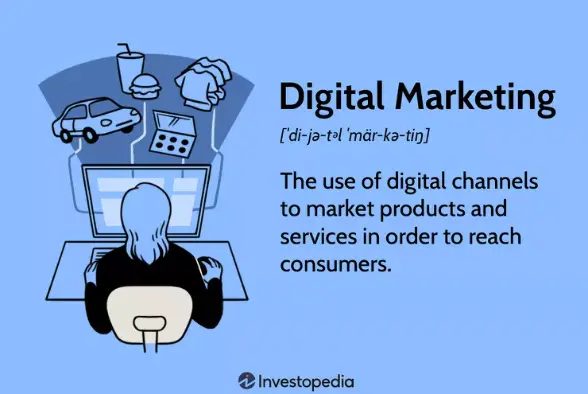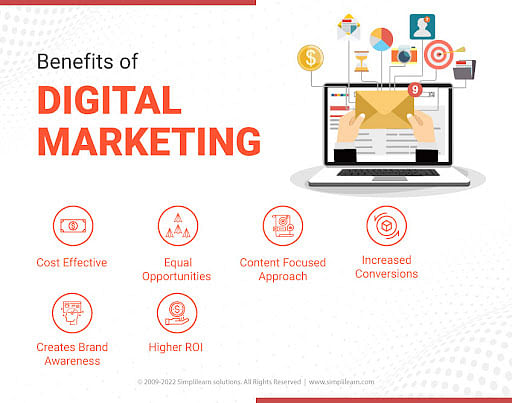Here are 10 tips for Assessing Expertise on Local Platforms and Channels when researching an agency for digital marketing in Asia with pros and cons, and the reason it is important for each point:
1. Look for case studies specific to platforms
The reason it’s important Studies show that the agency knows how to reach out to people in local markets.
Pros : Shows tangible outcomes and knowledge of specific platforms.
Cons: Some firms may not have experience with niche platforms or new platforms. This could restrict their knowledge of developing new strategies.
2. Multi-Platform Strategy Integration
Why it is important The digital landscape in Asia is divided. To ensure that campaigns are successful, platforms are often combined (e.g. Baidu to search, WeChat to engage customers as well as Douyin video ads).
Pros: Expands reach by leveraging strengths of every platform.
Cons: Campaigns that are too broad could dilute the focus, which can lead to poor results.
3. Assessment of Platform Specific Algorithms
Why it matters Every platform has its own algorithm – Baidu SEO prioritizes different factors over Google Douyin’s recommendations engines, while Baidu SEO’s prefer highly engaging content.
Benefits Enhances campaigns to provide that they are visible across all platforms.
Cons: Over-optimization for one platform may make it less flexible or effective across others.
4. Verify the localization experience
What is it: Making content that is relevant to the local audience is crucial for engagement. Japanese audiences are more interested in the subtleties of content whereas Chinese viewers prefer aspirational content.
Pros : Material that is aligned with culture enhances brand recognition.
Cons: Poor localization and tone-deaf campaigns can alienate audiences and damage your brand’s image.
5. Confirm KOL (Key opinion leader) Marketing Skills
Why it matters What is the significance of it Asia Influencers are trusted by consumers on platforms such as Xiaohongshu & Douyin where peer recommendations is the main factor in purchasing choices.
Pros: Rapidly establishes trust and credibility in local markets.
Pros: KOLs are expensive to manage and they may not align with the brand’s values if they are selected wrongly.
6. Make sure you are aware of the advanced platform features
What is important: Platforms, such as WeChat Mini Programs (Mini ads) and Bilibili Interactive Ads (Interactive Ads) have unique tools for engaging users. These tools can allow you to make your brand stand out.
Pros: Drives deeper engagement by using cutting-edge functionalities.
Cons: Advanced features may require more technical knowledge, and can cost more.
7. Ask about platform-specific metrics and reports
What is important: Different platforms have unique KPIs (e.g., watch time on Bilibili, engagement rates on WeChat and click-through rates on Baidu). These metrics are essential to evaluate performance.
Pros. Transparent reporting that’s tailored to benchmarks specific to the platform will result in measurable outcomes.
Cons: Metrics across platforms can be difficult to compare, which makes ROI assessments more difficult.
8. Evaluation of Agility on Emerging Platforms
Platforms such as ZEPETO (or new TikTok competition) can help you reach younger audiences. Becoming ahead of the curve can give your business an edge.
Benefits: Keeps campaigns current and in line with the most current trends in consumer behaviour.
Cons: Platforms that are emerging can be risky, as they might have strategies that have not been tested or a small number of users.
9. Verify compliance with Advertising Laws
What’s more important is that each nation has its own laws on advertising (e.g. China’s strict censorship regulations and privacy rules in Japan, or South Korea’s data protection standards).
Pros: Avoids legal trouble or fines.
Cons: Agencies that are cautious could restrict creativity or overlook certain strategies.
10. Find out about Local Team Presence or Partnerships
Why it’s important: Local teams as well as strong regional partnerships give better insight into consumer trends, platform updates, market trends, and more.
Benefits: Facilitates quicker adaptation to market conditions in local markets.
Cons: Organizations that lack local presence will rely more heavily on data from the outside which means they will have a in a slower response.
The most important takeaway:
When choosing an agency that specializes in digital media from Asia for your company ensure that you consider their ability balancing cultural proficiency, platform-specific expertise as well as the integration channels that are strategic. Knowing the advantages and disadvantages will help you to determine whether the company matches your requirements while also reducing the risk. View the top digital marketing agency in asia for more examples including growth marketing agency, marketing agency content, digital marketing marketing, marketing agency content, digital marketing marketing, digital marketing and strategy, growth marketing agency, digital media marketing, agency social media marketing, social media marketing agency and more.

Top 10 Tips For Compliance And Regulatory Expertise
It is essential to choose an online marketing firm located in Asia that is in compliance with local laws. Different countries have their own rules concerning privacy of data and standards for advertising. There are also platform-specific guidelines. Here’s why this is important, pros, and cons for each option.
1. Make sure to know local privacy laws
The reason it is so important It is important to know that there are strict data privacy laws in countries such as China, South Korea, Singapore (e.g. China’s Personal Information Protection Law PIPL) as well as South Korea’s PIPA). If you don’t adhere to the law, you could be penalized with huge fines.
Guard your brand from legal risks.
Cons: Agencies that don’t understand the laws governing data could expose you to risk of.
2. Confirm Expertise in Advertising Standards
It is important. Each country has a distinct law regarding advertising for example, Japan’s Act Against Unjustified Premiums or India’s ASCI guidelines. The implementation of ethical methods for marketing is ensured by adhering to the rules.
Pros: Protects you from getting your campaign banned or taken down due to violations.
Cons: Not adhering to these standards can result in wasted resources and reputational harm.
3. Verify that you understand the E-Commerce rules.
What it means What it means: The regulations that govern online advertisements, such as price transparency and claims about products vary across regions.
Cons: You should ensure that your marketing campaigns comply with legal requirements of e-commerce.
Cons: Non-compliance may result in platform restrictions or consumer complaints.
4. Evaluation of Compliant Platform Expertise
What is important : Platforms like WeChat, Bilibili, or Douyin require that their advertising policies are followed.
Pros: It improves performance across key platforms and prevents the rejection of ads.
Cons: Poorly executed campaigns or account terminations can be due to a lack of data.
5. Cross-Border Marketing Rules: Make sure they are familiar with them
Why it matters: When your campaigns span across multiple Asian countries, you’ll need to navigate different rules that govern international advertising and data sharing.
Benefits: Reduces the complexity of compliance in many jurisdictions.
Cons: A lack of cross-border experience can hamper campaign scaling.
6. Inspect their conformity with Intellectual property (IP) laws
What is the significance? Unauthorized copyrighted use could lead to legal issues, especially in countries with strict IP enforcement like South Korea or Japan.
Pros: Protects brand from copyright infringement.
Inattention to IP law could damage your brand’s reputation as well as finances.
7. Make sure they are updated on the Latest Regulatory Changes
The reason it’s important: Asian markets update their privacy and advertising legislation frequently (e.g. recently, China’s Cybersecurity law). For compliance in the long run it is crucial to be aware.
Benefits: Lowers the possibility of sudden disruptions caused by regulatory changes.
Cons: A dated knowledge base can lead to campaigns being non-compliant.
8. Make sure that you are in compliance with Influencer Marketing
What does it mean What does it mean? marketing (e.g. disclosures about paid partnerships) differ between platforms and across countries.
Pros: It provides honest and transparent relations with influential people.
Pros: Failure to comply may damage credibility and cause fines.
9. Make sure they are aware of Censorship Policy
What it means: In certain Asian countries, such as China or Vietnam Content censorship is extremely strict. It is essential to handle sensitive topics carefully in order to avoid being banned.
Pros: Avoids takedowns and ensures a smooth campaign delivery.
Cons: A lack of awareness can lead to the waste of advertising dollars or reputational harm.
10. Search for evidence of a legal compliance team
What is the significance of this: Agencies with in-house compliance experts or legal teams are better equipped to handle complex regulations.
Benefits: This cuts down on the amount of effort required by your team in order to make sure that you are in conformity.
Cons: Smaller organizations may not have this expertise.
What you should know:
Expertise in compliance and regulation frameworks can help you avoid financial, legal and public relations risks, while also ensuring efficient business operations. To get the most out of your campaign, prioritize agencies that have demonstrated experience in platforms, regional laws, policies and international laws. View the best digital marketing agency japan for more recommendations including marketing businesses, mktg digital, digital marketing for social media, digital marketing social media marketing, digital marketing for social media, creative marketing agency, digital marketing agency usa, on line marketing, digital marketing is what, services for digital marketing and more.
